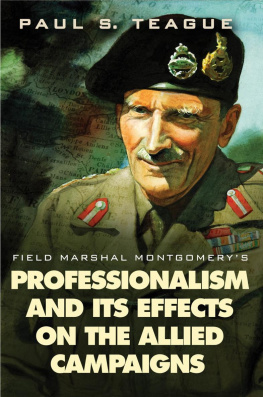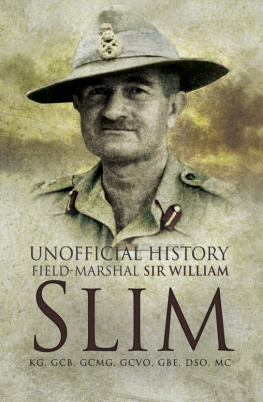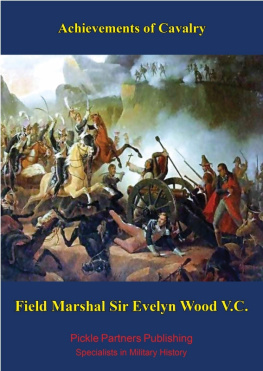This edition is published by PICKLE PARTNERS PUBLISHINGwww.pp-publishing.com
To join our mailing list for new titles or for issues with our books picklepublishing@gmail.com
Or on Facebook
Text originally published in 1873 under the same title.
Pickle Partners Publishing 2016, all rights reserved. No part of this publication may be reproduced, stored in a retrieval system or transmitted by any means, electrical, mechanical or otherwise without the written permission of the copyright holder.
Publishers Note
Although in most cases we have retained the Authors original spelling and grammar to authentically reproduce the work of the Author and the original intent of such material, some additional notes and clarifications have been added for the modern readers benefit.
We have also made every effort to include all maps and illustrations of the original edition the limitations of formatting do not allow of including larger maps, we will upload as many of these maps as possible.
LIFE AND CORRESPONDENCE
OF
FIELD MARSHAL SIR JOHN BURGOYNE, BART.
BY HIS SON-IN-LAW,
LIEUT.-COL. THE HON. GEORGE WROTTESLEY,
ROYAL ENGINEERS.
IN TWO VOLUMES.
VOL. II.
WAR WITH RUSSIA.
THE commencement of 1854 found war with Russia imminent, and Sir John Burgoyne in close and confidential communication with the Government of Lord Aberdeen. His reflections on the war between Turkey and Russia, should we become involved in it, are dated 16 th January, and a subsequent pap& on the same subject, 23 rd January, 1854. In these, he recommends the Government to take possession as early as possible of the Dardanelles, as a base of operations for their fleet, and to press upon the Turkish Government the reduction of their fleet to the lowest possible strength, the French and English undertaking to provide for all the naval requirements of the war.
If Constantinople could be secured, he considered that the best field of operations for the Turks against the Russians would be Georgia; and being apprehensive that the admirals in the Black Sea might be encouraged by the example of Acre to pit their wooden ships against the stone forts of Sebastopol, he wrote to Lord Raglan to demonstrate the dangers of such a proceeding, and the certainty of its failure, if attempted.
The first letter of Sir James Graham which follows refers to this communication; it will be seen from the correspondence of this period, that the power of Russia for offensive operations was very much overrated by those best informed in the matter.
From Sir JAMES GRAHAM to Lord RAGLAN.
Admiralty, 12 th January, 1854.
MY DEAR LORD RAGLAN,
So far from stepping beyond your duty in allowing me to read the enclosed able report, you appear to me to have executed your dutyas you always doin an exemplary manner. It would be most unfair that the British Admiral should not have the advantage of the opinion of one of our most distinguished scientific officers, so far as imperfect information has allowed him the means of forming a judgment.
I would suggest that Colonel Vicars should take with him a copy of Sir John Burgoynes report, and that he should have permission to show it confidentially to Admiral Dundas.
I hope that you will concur in this suggestion. If you do, no time should be lost in sending a copy to Colonel Vicars, for he leaves London tomorrow morning, and will embark at Portsmouth in the afternoon.
I wish, also, that you would have the kindness to send me another copy of this same report for my own use.
It may be very desirable that the Cabinet should see and well consider it.
I am, &c.,
J. B. G. GRAHAM.
Admiralty, 18 th January, 1854.
MY DEAR SIR JOHN,
You cannot offer us too much advice or too many suggestions: coming from you they are highly valued by me. Your memorandum on Sebastopol has entirely changed my views of the policy to be pursued.
I wish you could allow me the pleasure of a conversation with you. Could you call here tomorrow (Thursday) about four oclock?
Yours sincerely,
J. R. G. GRAHAM.
Admiralty, 30 th January, 1854.
MY DEAR SIR JOHN,
I have no faith whatever in s judgment or knowledge; and my opinion is quite in unison with your sound reasoning and long experience.
My great anxiety now is with respect to the Dardanelles: if we have war, and if military precautions are not taken in good time, our naval position in the Black Sea is neither tenable nor consistent with our honour. A rapid retreat, leaving Constantinople undefended, to secure an escape through the Dardanelles at the last moment, would be a disgrace to our character and arms, which I blush to contemplate.
This must not be.
Sincerely yours,
J. R. G. GRAHAM.
Admiralty, 21 st January, 1854.
MY DEAR SIR JOHN,
I am anxiously awaiting a sight of your second Memorandum, which will treat of the occupation of a strong position on the Dardanelles as the basis of military operations, in conjunction with their fleet both in the Bosphorus and the Black Sea. Without this occupation, if the Russians advance in force to the Balkan, I conceive that the combined fleets, the Dardanelles being threatened, must return to Besika Bay; whereas if the position be well taken up, and properly fortified, it may be a Torres Vedras, on which we always can fall back with security and speed by the aid of steam, even from the shores of Circassia, where, by combined operations and sudden landings, we may weaken and torment the enemy exceedingly. It is of great importance to consider what the strength of the military force ought to be, and how composed.
I imagine that little or no cavalry would be necessary, and horses only for the use of the artillery. It must be a combined operation; and the French force would be at least equal to ours.
Surely 10,000 English and 15,000 French would form a formidable corps darme, with the Dardanelles strongly occupied by land, and the combined fleet in complete possession of the passage both ways by sea.
The Cabinet meets on Tuesday. If I am in possession of your views on this subject previously, my mind would be more at ease.
The discussion of these questions in your clear and calm mode of reasoning, would be of infinite use in aiding the Cabinet to arrive at a sound conclusion.
If you could let me have your Memorandum tomorrow evening, it might be better that I should see you on Tuesday before the Cabinet, say at one oclock, when I shall have had time to read your Memorandum, and to consider it.
I am most anxious not to fail in the least particular of the respect due to Lord Raglan, both personally and officially. You will keep me right with him on this head. The questions at issue are intimately connected with your branch of the profession: and your first excellent Memorandum, which produced so great an effect on my judgment, has naturally opened this larger field of discussion.










